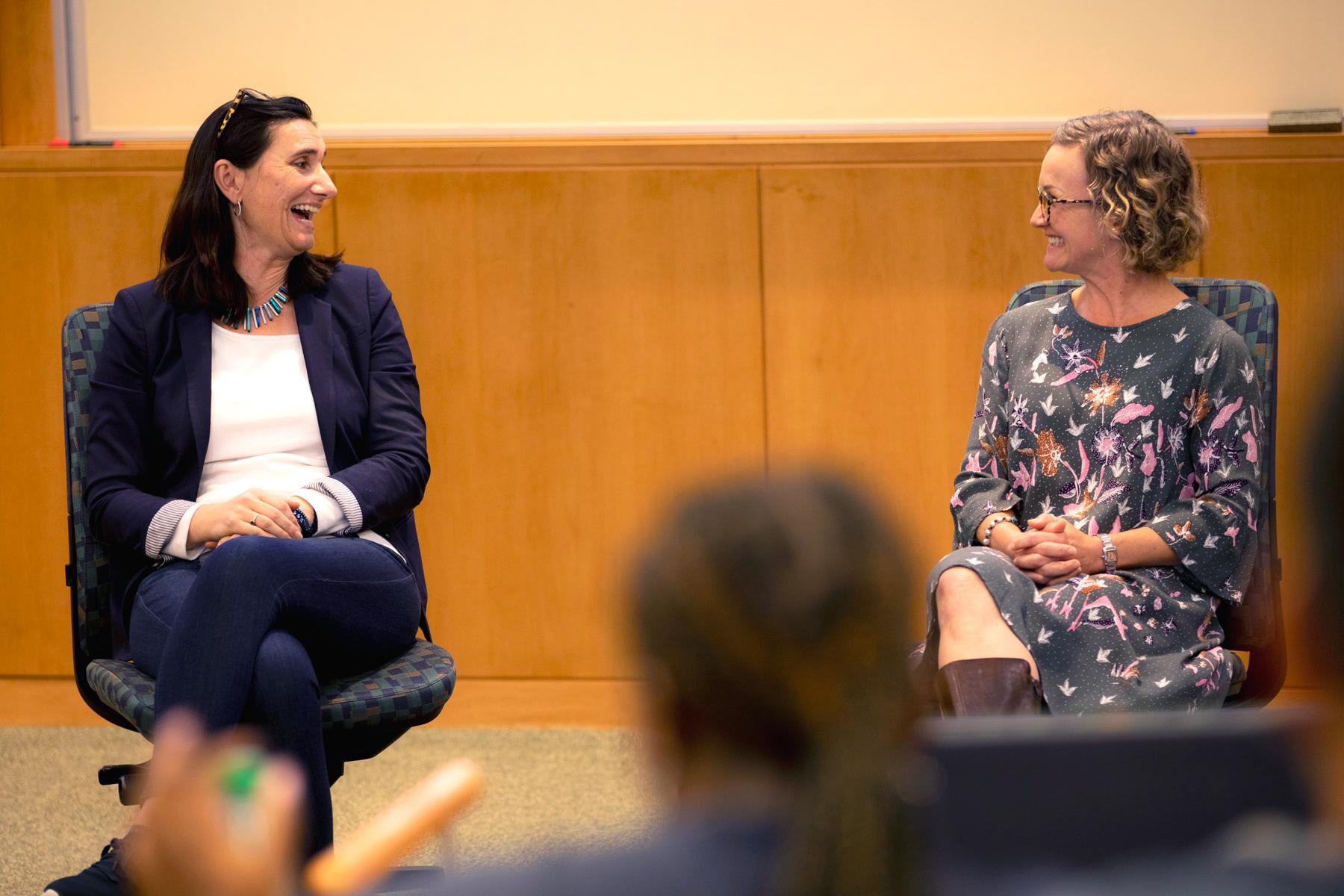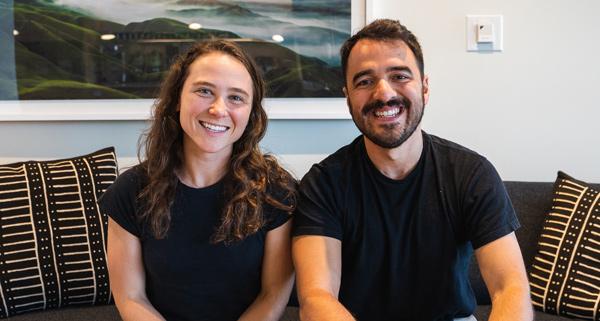Entrepreneurship isn’t just about founding a startup. Joining an early-stage venture, investing in startup companies, and creating a new venture at an established company are all part of the world of entrepreneurship.
That’s why entrepreneurship offerings at Tuck cater to both starters and builders—and the same goes for the mini course, Entrepreneurial Thinking taught by Daniella Reichstetter T’07, clinical professor of business administration and faculty advisor for the Center for Entrepreneurship, and Trip Davis D’90, adjunct professor of business administration.
It really is the central course and central pathway for students who want to pursue the entrepreneurship offerings at Tuck,
Davis says. We wanted to be open. We wanted to be welcoming to students with many different perspectives, not just the founder, ‘I’m-going-to-start-a company’ perspective.
It really is the central course and central pathway for students who want to pursue the entrepreneurship offerings at Tuck. We wanted to be open. We wanted to be welcoming to students with many different perspectives, not just the founder, ‘I’m-going-to-start-a company’ perspective.
—Trip Davis D’90
The course mirrors the cycles a startup goes through, and students learn how to use the lean canvas methodology to determine if their ideas are viable by deconstructing them and conducting risk assessments.
Entrepreneurial thinking is a mind shift, from the traditional approach of MBA thinking,
Reichstetter says, We ask the students to get curious about a problem or opportunity from the perspective of a customer, user, payor, or beneficiary. This approach requires empathy, curiosity, and good listening skills, among other more traditional business skills like determining market size, competitive landscape, and business model.
For each class, Reichstetter and Davis bring in a practitioner who spends about a third of the class time sharing their expertise. They could be an entrepreneur, an investor, or an expert in design thinking, to name a few examples.
We invite the students to experience venture creation from the earliest stage; we also layer on the perspectives of startup builders,
Reichstetter says. When guest speakers join us, they’re giving first-hand perspective of the builder’s experience. Trip and I, both seasoned entrepreneurs, bring our personal experiences to the classroom as well.

In the fall, entrepreneur Susan Hunt Stevens T’98 (pictured with Reichstetter) visited the Entrepreneurial Thinking course and hosted office hours for students. Stevens is founder and CEO of WeSpire, an award-winning employee experience technology platform.
Students work in teams of two to five throughout the duration of the course, where they’re addressing a problem and looking at a new venture opportunity. They could be working with projects out of the Dartmouth Technology Transfer Office, or they could be working on their own idea.
Reichstetter and Davis have evolved the class over the seven years it has been offered. Most recently, they started introducing video lessons between each class that can help the students build their foundational knowledge, allowing for deeper and more wide-ranging class discussions during each class session.
We continuously refresh the content and the approach,
Davis says. As we teach about the value and impact of iteration and learning, that’s exactly how we have changed the course, so we’ve made it more iterative in its microcycles week to week.
Unlike most mini courses, Entrepreneurial Thinking is a full-term course. It touches about 100 students each year. It’s really grounded more in some of the design thinking principles and applying those at the earliest stage to make sure that when you are making investments of time, of people, of money, that you’re doing it in the right direction,
Reichstetter says. You’ve laid the foundation and have a really good understanding of what problem you’re solving, and for whom, before you put money toward a solution before you figure out whether that thing is going to be valuable.
This story originally appeared in print in the winter 2023 issue of Tuck Today magazine.
Read More in This Story

Starters & Builders: How Tuck Does Entrepreneurship
Discover the evolution of entrepreneurship at Tuck, how Tuck teaches the entrepreneurship life cycle, and how Tuck collaborates on all things entrepreneurial across Dartmouth. Read More

Alumni Startup: ConnectUs
Christine Rohacz T’22 and Teo Gonzalez T’21 are co-founders of ConnectUs, a platform focused on transforming relationships at work by allowing managers to facilitate one-on-ones, set goals, and track personal details. Read More

